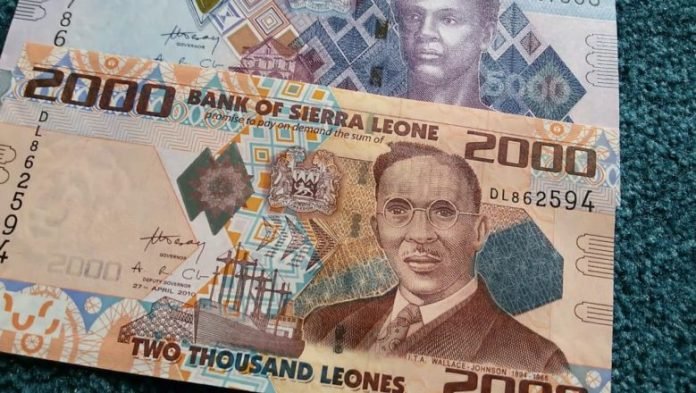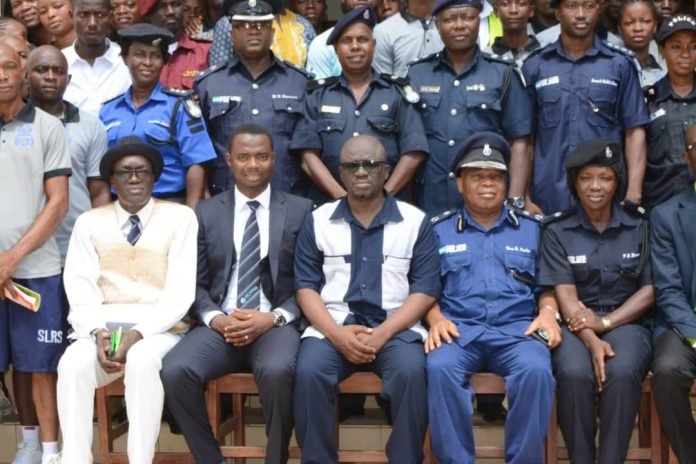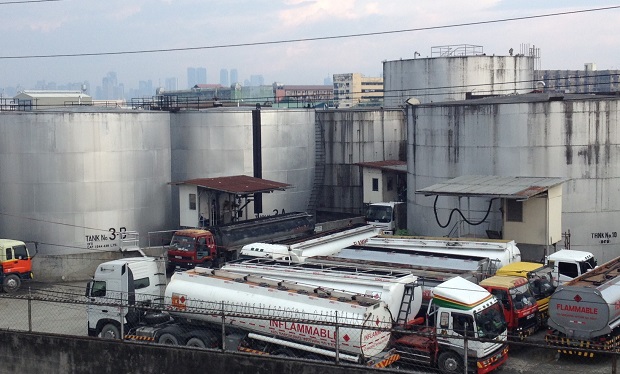As we move through the second decade of the twenty-first century, the legal profession in our beloved Sierra Leone confronts a confluence of pressures and realities that have the potential to greatly change how law is practiced at all levels of the profession.’ Like multiple rivers coming together to create a larger more powerful river, these pressures and realities are coming together to exert inordinate pressure on the legal profession for change. While no one can predict the future with a high degree of accuracy, we can try to understand how the recent past and current realities influence how the future develops. One thing that is certain is that in one way or another, like a rushing river, the future is at hand with imminent changes to the practice of law and the legal profession.
During the twentieth century, there was unprecedented growth in the influence of law and legal systems across all levels of our society. Over the last forty years, the lawyer population in Sierra Leone has increased profoundly. The segment of the bar and law firms representing entities grew dramatically, while the sophistication of these entities in the purchase of legal services has likewise expanded and developed. At the opposite end of the spectrum, the legal needs of many of our people go largely unmet. A significant segment of society, including those in the socio-economic lower middle class simply cannot afford to hire a lawyer and as a result, do without legal representation.
These glaring realities are buttressed by significant pressures that are demanding and compelling changes in the practice of law. Clients, technology, competitive forces, globalization, and, to an extent, the government are exerting unprecedented pressures on the legal profession to change how law as a profession and as a business is practiced and regulated. These forces are often working in tandem, and, at times, at cross purposes, to mold the ever changing landscape of the legal practice.
During the nineteenth century, almost all lawyers ‘went to court’ and, as a consequence, the profession was largely defined by the norms and practices of litigation; I will gladly refer to this time in the history of the legal profession as a “club” because the profession displayed the following features: membership exclusivity, members engaged each other outside of their roles as professional service providers, competition was constrained by norms of politeness and courtesy, there was little lateral mobility, relations between providers and clients were stable and long lasting, based on institutional history and not personal connections.
Also, prior to the twentieth century, the practice of law was fairly regulated. Sadly, this is not the case today. Nowadays competition comes from non-lawyers of all sorts. Lawyers engaged in fairly wide open advertising and client solicitation. Many lawyers practice multiple professions within the same office, often out of economic necessity. The profession as at then, and as now, has not always been held in high esteem.
While the structural pillars of lawyering of these various generations remain largely constant over the years, they were a creature of the environment within which they were created. They reflected a profession that was fairly homogeneous and relatively small. They reflected a profession that was comprised of generalists, with a heavy focus on litigation and individual client counselling, working in solo or very small private practices. They reflected a profession that predominantly serviced a fairly unsophisticated client base even when those clients were entities. They reflected a profession that maintained fairly stable employment situations in which many lawyers spent their entire careers at one location similar to many employees of other business entities.
On another spectrum, lawyers, by training, tend to be fairly conservative and notoriously risk adverse. The heavy reliance on precedence means that past practices often limit or dictate current practices. At the same time, many of the more significant political and social changes in the last century have been initiated or assisted by lawyers. The current and evolving state of affairs calls for profound changes in the governance and regulation of the legal profession at a time when competition, clients, technology, globalization, and the government are all exerting significant pressures on the profession to do things differently. Not change for change’s sake, but change that will enhance competitiveness and efficiency, drive down costs, increase competence, provide greater access to legal assistance, and promote innovation in the delivery of legal services across the spectrum of clients.
There can be little doubt that we live in exciting and interesting times. For lawyers, these times bring clear challenges and opportunities. Significant pressures are pulling the profession in numerous directions. With these pressures come opportunities. Whether one wishes to characterize the winds blowing against the legal profession as a paradigm shift, a move from a profession to a business, or simply a profession in decline, the facts remain the same: change is coming. Perhaps within the legal profession, change is always coming. The fact is that because lawyers exist to serve the interest of clients, the public, and society, their fate is directly attached to the current needs and pressures of the time. I will now point out a key pressure point of our time:
Politics at the Bar: In Sierra Leone as elsewhere, Lawyers since time immemorial have famously dabbled in politics. A good number of lawyers have headed Governments more than any other profession. Of the seven democratically elected Heads of State in Sierra Leone, (28.5%) were lawyers (Albert Margai and Alhaji Tejan Kabbah) and 71% Vice-Presidents (A.A. Koroma; F.M. Minah; Dr. Abdullai Conteh; J.B. Dauda; and Solomon Berewa). So, as lawyers, we must take responsibility for the good, the bad and the ugly happenings of the past and the present.
In the mid-sixties, when Prime Minister Albert Margai, attempted the introduction of a One-Party State, the role of lawyers was as conspicuous, as it was facilitating. Come 1978, Siaka Stevens mastered that art, and ushered in a One-Party State. Again the role of lawyers was pivotal. So clearly while lawyers used politicians for personal aggrandizement and gain, and vice versa, the politicians use the lawyers to lengthen their stay in power and as a result their increased executive powers led to arbitrariness. “Na sense make book nor to book make sense”, Siaka Stevens, would retort derisively whenever he outwitted the “Learned Profession”.
During the One-Party era, the stereo of the Bar Association as an entity was put on pause. Individual voices were raised in isolation, on issues such as land tenure, independence of the Judiciary and corruption in high places. The pens of T.S Johnson, Cyrus Rogers-Wright, Riby Williams, Dr Bubua K. Jabbie, Edmund Michael, and Blyden Jenkins-Johnston to name a few, wrote articles condemning the excesses of the one party government. Their acidic voices kept the flames of objectivity alight.
Interestingly also, in that same 1978 Constitution, Section 24 (1) provided that “the Chief Justice shall be the Returning Officer for the election of a President”. I can only imagine the reaction of the public if that provision was to obtain today. Blessedly however, the 1991 Constitution uprooted that provision completely.
The politics at the Bar also continued to be mirrored along the lines of the pre-colonial days, between Non-Natives of the Colony and the Natives of the Protectorate. The paucity of lawyers from the latter made it impossible for them to exert control or leadership at the Bar at the time.
In any event, Politics at the Bar continued to be polarized but in a subdued fashion, until the establishment of the Sierra Leone Law School in 1989. The twist in the event shockingly appeared between lawyers ‘made in Sierra Leone’ and those ‘made in the United Kingdom’. In a very short period, the huge numbers of Graduates of the Sierra Leone Law School gave rise to the power of the vote and hence ultimate control of leadership at the Bar. This gave the opportunity for the clash of the Titans of the Protectorate in the persons of George Banda Thomas, ostensibly representing the SLPP, and Abdul Serry-Kamal, undoubtedly representing the APC. To my memory, that was the nucleus of the political divide and to date considered the most acrimonious elections at the Bar. The lines were drawn and Chambers served as cells to nurture political ambitions and the recruitment of lawyers based on party lines.
In the latter years, the unsavory political experience at Fourah Bay College, descended upon the Bar like an avalanche and subsequently scattered the association like an archipelago. Thus reflecting the naked rivalry between the SLPP and APC parties – and in today’s parlance BLACK vs WHITE Camps.
Successive Governments exploited the malaise and used the Bar to control dissenting opinion, whilst the opposition, used the Bar as an obtrusive mechanism to undermine Government. Either way, the Bar lost its independence, professionalism, integrity and esteem in the eyes of the Public. Regrettably, the Judiciary became a collateral by-product of the damage. Politicians will capriciously remove Chief Justices, with barely any voice from the Bar. It started with the unlawful removal of Chief Justice Okoro Cole, Hon. Chief Justice Dr. Ade Renner-Thomas, (save the voice of Chukuemeka Taylor, a Lone Ranger) and resignation (compulsory) if it maybe, of the Hon. Chief Justice Charm. The opportunism within the Bar and Bench, and party loyalty, blinded the vision and intellect of the many a practitioner, that would otherwise have been vociferous.
However, all is not lost. A breath of fresh air was ushered into the Bar, with the election last year of Mrs. Basita Michael. Her leadership of the Bar has shown outspokenness for the truth, value judgments in decisions of the Bar and the pursuit of litigation, as recourse for redress. Disappointingly and very worrisome, is the fact that none of the cases filed on behalf of the Bar, were ever listed for hearing nor assigned. This is singularly the most dangerous development in the wake of rebranding trust in the Judiciary. This is a threat to the enforcement of the Constitution, contrary to Section 23(2) of Act No. 6 of 1991 Constitution of Sierra Leone. Even the Writ of Mandamus, filed to compel assignment of the cases, remains largely ignored. I seize this opportunity to make a direct plea to the Hon. Chief Justice, to do the utmost needful.
Now, what is the way forward, one may ask. The legal profession cannot continue to operate in a political “Agbada”: something has to give. In deciding what areas need to change, key principles come to mind:
(a) First and foremost, promoting ethics, integrity and commitment to affordable justice for all. In this regard, continuing Legal Education could play a vital role. What this means, is that, compulsory attendance at legal training sessions in the course of a year must be a prerequisite for Counsel to obtain the Annual Practicing Certificate.
(b) Secondly, the practice of the law should facilitate innovation, efficiency, and competition, including the dramatic impact that technology is playing and will continue to play in the practice of law. Generally, innovation, efficiency, and technology tend to drive down the cost of services and enhance the quality of the practice. Lack of innovation, efficiency, technology and competition create an environment where the profession appears to serve its own interests while, in significant ways, neglecting the needs and wants of clients.
(c) Finally, the legal profession cannot ignore many of the realities of life as affecting the society, including but not limited to the ever increasing external influence by other branches of the government, as well as the judiciary.
These forces appear to be gaining greater traction as we move into the second decade of the twenty-first century, and they will exert even greater influence on the legal profession in the coming years. The Bar must maintain its independence, refrain and resist toxic overtures and pressures of party politics.
The inevitability of change is upon us. One constituency or another will push change. Whether it’s sophisticated and powerful clients, national and international competition, technology, the profession itself, or a combination of some or all, change is inevitable. Clinging to the past is not an option.
Change from within would seem to be preferable to change imposed from without. The profession needs to craft new rules that will enhance competition, promote innovation, embrace technology, and promote efficiency, limit political party intrusion and demand competence, while preserving core-client protections.
This will not be an easy task, I must concede. Not every interest will get what it wants, and numerous compromises will be made along the way. But true to form, the legal profession can no longer operate as if it was 1980, let alone 2000. We must recognize the realities of the twenty-first century and incorporate rules of practice and ethics that acknowledge those realities. If we don’t, others will.
The choice is ours.
I thank you all!










